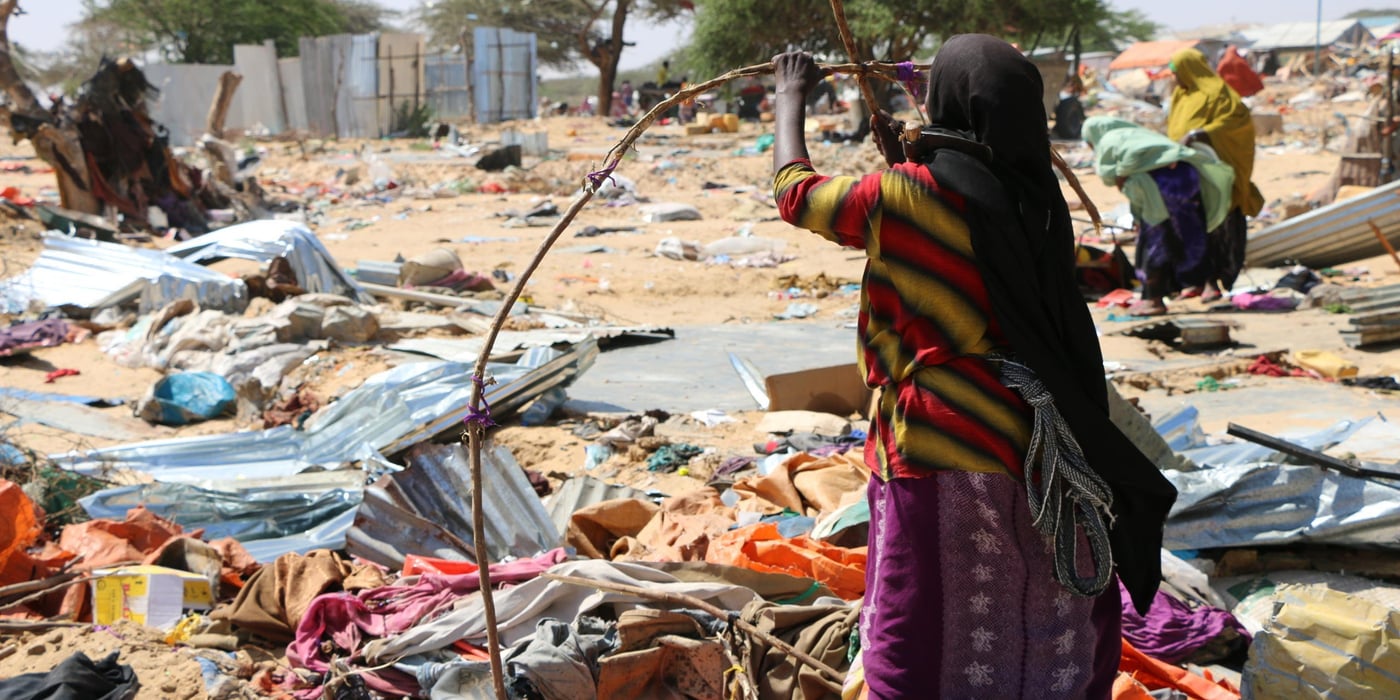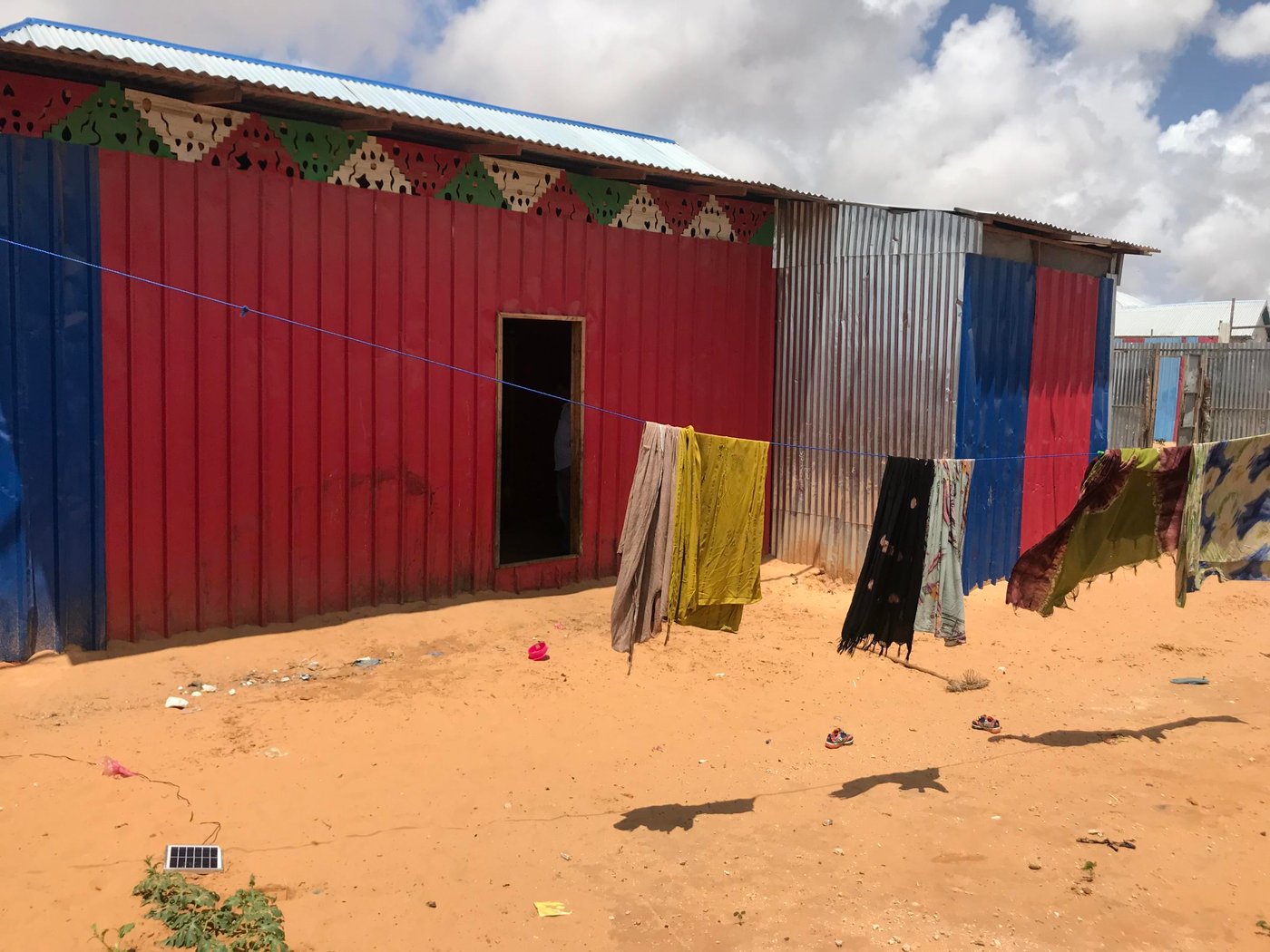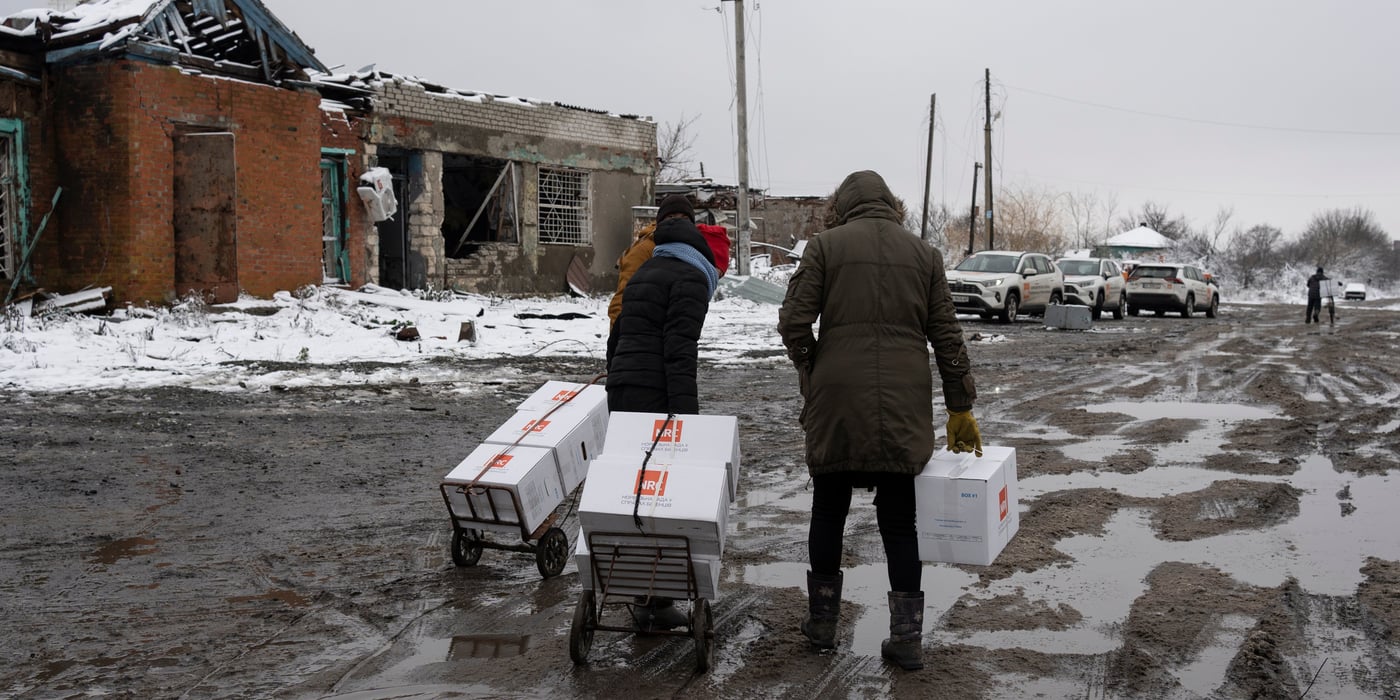
Since January 2018, over 234,000 people have been forcibly removed from their homes in Somalia. In August this year, the Norwegian Refugee Council (NRC) warned that the number of evictions was nearly twice the number of the same period last year. Many people have been made homeless multiple times.
Fleeing conflict and drought
Aden is a 69-year-old father of six and displaced in his home country. In 2015, armed conflict and drought forced Aden and his family to flee their town in southern Somalia. They arrived in the outskirts of Mogadishu, where they lived in an informal settlement for two years. Aden started selling samosas to earn a living.
Prolonged drought and violent conflict, combined with the lack of access to essential services in varying parts of Somalia, have forced many to migrate from rural to urban areas. This has created many new settlements, especially in Mogadishu. The city hosts more than 600,000 internally displaced people – a third of the total figure in Somalia.

Received no warning
In the early hours of the morning a little over a year ago, Aden was preparing samosas in the kitchen when armed men came to the settlement and ordered everyone to leave.
"We had not had any warning."
The men started arguing with the settlement leader and some of them opened fire. Three stray bullets hit Aden. "I didn’t realise I was shot until things calmed down. By then, I had lost much blood and was rushed to the hospital."
Rapidly growing cities
Cities in Somalia are already struggling to address the needs of their poorer populations. With the migration from rural areas, a sizeable population of Somalia’s farmers and pastoralists have come to live in cities where they have trouble finding a livelihood. This is a cause of concern for rapidly growing cities and Somalia’s key agricultural economy.
What used to be considered seasonal rural-urban migration has increasingly become a permanent move to cities as rural livelihoods have been destroyed by recurrent and protracted droughts and violent conflict since the collapse of the government in 1990.
Settlements such as the one Aden and his family were living in are usually in the outskirts of the city. As population density rises in Mogadishu, displaced people and urban poor are being pushed further out – and with every kilometre they go, the chances of exploitation increase.
I am thankful that I was the only one home that day, it could have been any one of my children.Aden, 69

Violent evictions
It was only a few months after he was released from the hospital that we encountered Aden. The bullets had struck him in his right leg leaving him unable to walk without a cane. He spent over two months in the hospital and was discharged when he could no longer afford it.
Still living in an informal arrangement, the noticeable limp hadn’t affected his good spirits according to residents who also knew him from their hometown.
"I am thankful that I was the only one home that day, it could have been any one of my children."
Why are people being unlawfully evicted?
Land issues are the cause of many conflicts in Somalia and vital to reconciliation efforts according to countless national and regional peace conferences.
Dating back to Somalia’s independence in 1960, a long history of poor urban planning and a weak legal framework paved the way for the country’s elites to benefit from the appropriation of both public and private land. Today, displaced people are affected by competing claims of the lands they settle on and more importantly, the lack of access to public land, resulting in evictions.
"There are many layers contributing to the eviction crisis. One of the bigger issues is that displaced people don’t have documents proving that they have a right to live on the land," says Abdirisak Ahmed, NRC’s information, counselling, and legal assistance (ICLA) manager in Somalia.
Also, people who control access to land and aid – so called gatekeepers – are facilitating the process of relocating displaced people in alliance with private landowners. This is often informal, not legally binding and ambiguous.
And while the authorities in Mogadishu are committed to putting a stop to unlawful evictions, the government institutions responsible are not yet strong enough to do so – leaving displaced people in the hands of wealthy and powerful individuals.
The information sessions taught me about rights I didn’t know I had as a tenant. It is less likely for me to be evicted now.Aden, 69
Working to solve the eviction crisis
In partnership with UN Habitat and funding support from the Swedish Government, we were able to register and support Aden’s family and 79 other families under a first of its kind pilot rental subsidy and livelihoods project.
To counter the eviction trend, we provided 80 families with money to cover their rent for 12 months, in addition to monthly cash assistance of USD 70 for seven months to cover basic needs. We provided an intense business skills development training that went on for five days and upon completion, each family was granted USD 500 for enterprising. Lastly, we gave families an information session on housing, land and property rights in Somalia.
"The information sessions taught me about rights I didn’t know I had as a tenant. It is less likely for me to be evicted now," says Aden.
In addition, NRC will offer legal counselling services should Aden and families benefitting from this programme need mediation between them and landlords.
"A large part of our success so far is because of the robust engagement with landlords and involvement of government authorities," says Joseph Jackson Jr. NRC’s ICLA expert in Mogadishu.
Runs his own shop
With the monthly cash assistance, Aden was able to save the money he earned from his samosa business. Combining his savings with the USD 500 grant, he now has a small shop where he sells a variety of basic household items.
"I want to become a self-sufficient businessman so that nine months from now I will be able to cover the rent on my own." Now that he is renting his home, Aden feels like he has become a respected member of the community.



